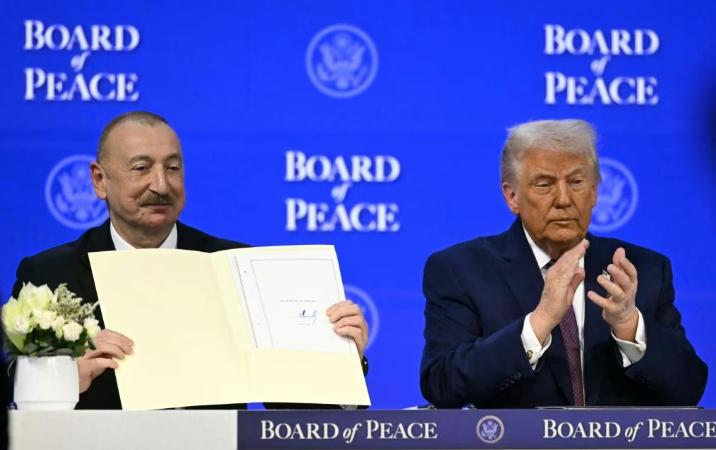In the Tajikistan Sustainable Development Cooperation Framework for 2023–2026, the country aligns its policy priorities with the United Nations Sustainable Development Cooperation Framework, focusing on critical tasks related to the legislative framework for national programs.
These efforts aim at supporting livelihoods, enhancing agricultural production, improving health, education, and nutrition outcomes, and strengthening national institutions and systems. Such socio-economic progress not only sets the stage for sustainable growth and prosperity but also lays a solid foundation for peace and stability, with Tajikistan emerging as a beacon of stability, adeptly guiding the country towards comprehensive, long-term development through the implementation of a carefully crafted and executed development plan.
Tajikistan strides forward as a driving force in progress and development across multifaceted domains encompassing the economy, development, and the fostering of diversity, committed to investing in the socio-economic development of the country and achieving the Sustainable Development Goals by 2030. The mechanism is guided by the UN Development Assistance Framework (UNDAF), and the National Development Strategy 2016–2030, with a focus on providing accessible services in education, health, social protection, boosting investment, improving economic governance, and creating a transparent regulatory environment.
President Emomali Rahmon’s leadership is taking additional measures to eliminate the consequences of financial and economic problems and to make full use of existing capacities to ensure efficient economic development while expanding financing opportunities for the social sector. The capacity strengthening of young farmers through training, business literacy, and market linkages is attracting interest from new donors and expanding the scope for nutrition-sensitive value chains.
The efforts toward national ownership of programs are being reinforced by the government through constant technical support in developing legislative and regulatory frameworks with functional mechanisms to increase ownership and institutionalization, such as the school feeding program. Furthermore, steps are being taken to develop a regulatory framework aligned with international best practices to build a green bond market in Tajikistan, address significant financing needs for climate change, and meet nationally determined contributions (NDCs).
Capacity building for Parliament members is ongoing, focusing on the implementation of the National Development Strategy 2030 and SDGs, planning and budgeting processes, attracting alternative funding, financing for children, monitoring and evaluating implementation. The Joint UN Programme “Financing SDGs in Tajikistan” aims to support the government in achieving its national priorities and SDG targets by creating an architecture and an integrated resource mobilization strategy to institutionalize robust, inclusive, and sustainable policy dialogue on SDG financing to achieve national policy priorities. The program specifically focuses on the education sector as a pilot to explore new ways of facilitating and securing financing for SDGs, which can be replicated in other sectors. This Cooperation Framework is anchored by Tajikistan’s strategic priorities, including the National Development Strategy, Sustainable Development Goals.
Tajikistan Development Cooperation Framework is reinforcing partnership and efforts to achieve the Sustainable Development Goals and national development priorities and key actions have developed through discussions inclusive of all stakeholders and representatives of all groups, identifying inclusive human development and people-centered governance and rule of law as priorities. With support from the Green Climate Fund, the World Food Programme’s (WFP) initiatives are being taken to promote climate resilience in vulnerable districts, increase communities’ knowledge and awareness, enhance the government’s technical capacities, and support diversified, climate-resilient livelihoods. Additional funding has contributed significantly to scaling up cash-based transfers through food assistance for assets and implementing asset creation activities in districts affected by climate change, disaster risks, and hunger. The Public-Private Partnership (PPP) Centre under the State Committee for Investment and State Property Management would play a role in introducing the implementation of PPP projects to accelerate the implementation of NDS and the progress of SDGs across the country.
These policy strategies would raise living standards in line with the Sustainable Development Goals while ensuring energy independence, food security, and rapid industrialization. Strengthening the regulatory framework, establishing a regional logistics center, introducing digital technology, and developing an intelligent transport system are key priorities for Tajikistan’s development journey.
President Emomali Rahmon’s focus on bolstering national unity, stability, and socio-economic progress has led to substantial infrastructure upgrades, modernization drives in the educational sector, and cultural initiatives. Tajikistan is committed to realizing its vision of a steadily growing, providing best living standards and equal opportunities for all based on equality, justice, and respect for human dignity. Through inclusive development initiatives and sustainable financing mechanisms, Tajikistan is leading the way to achieve its sustainable development objectives, ensuring a prosperous and resilient future for its citizens.

Executive Director, Pakistan Research Center for a Community with Shared Future (PRCCSF).












